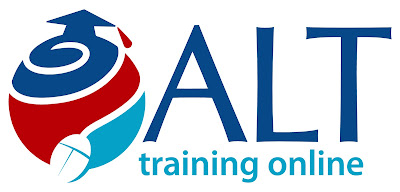Check out altto.net to experience the ALL NEW ALT Training Online collection of FREE courses.
The needs of ALTs have changed over the past few years. The team here at ALT Training Online has been working hard to keep pace with those changes.
After months of work and thousands of hours put into the new site, it's finally here!
We've heard your feedback and have implemented the changes you've asked for.
The old ALT Training Online website was good, but our new site is even better.
Long pages of text have been replaced by interactive, multimedia courses complete with progress tracking and certificates.
This was made possible by leveraging the power of Moodle to create a genuine MOOC (massive open online course) for language teachers in Japan to sharpen their skills and connect with each other.
As of our relaunch, we have 7 courses available with more on the way.
The blog section is now New and Updates. This is where we'll bring you our monthly guest blogs in addition to other useful information for ALTs.
Our newsletter, The Monthly Trainer, will continue to bring you the latest tips and tricks that you can use in the classroom today.
When the site's founder, Nathaniel Reed, set out to create this website years ago, his goal was to create a place for ALTs who wanted to be better teachers to get the training they so desperately needed.
The ALTTO mission is simple: Connecting and empowering language teachers across Japan.
Our new site brings us ever closer to this goal.
This site is a passion project made by ALTs, for ALTs.
Join us and be a part of the future of teaching English in Japan.
Start studying at ALT Training Online now!
- A note from ALT training online’s David Hayter
If you have something 'ALT' to write about that hasn't been covered in these blogs, email David at alttoblog@gmail.com so we can work together and spread your story.
Don't have any ideas? We have a list of topics to write about that need a writer. Email in your interest to write and we can set you up.
Don't have any ideas? We have a list of topics to write about that need a writer. Email in your interest to write and we can set you up.
Never miss another blog again! Click here to sign-up for our newsletter, "The Monthly Trainer," to stay up to date with everything ALTTO has to offer.























